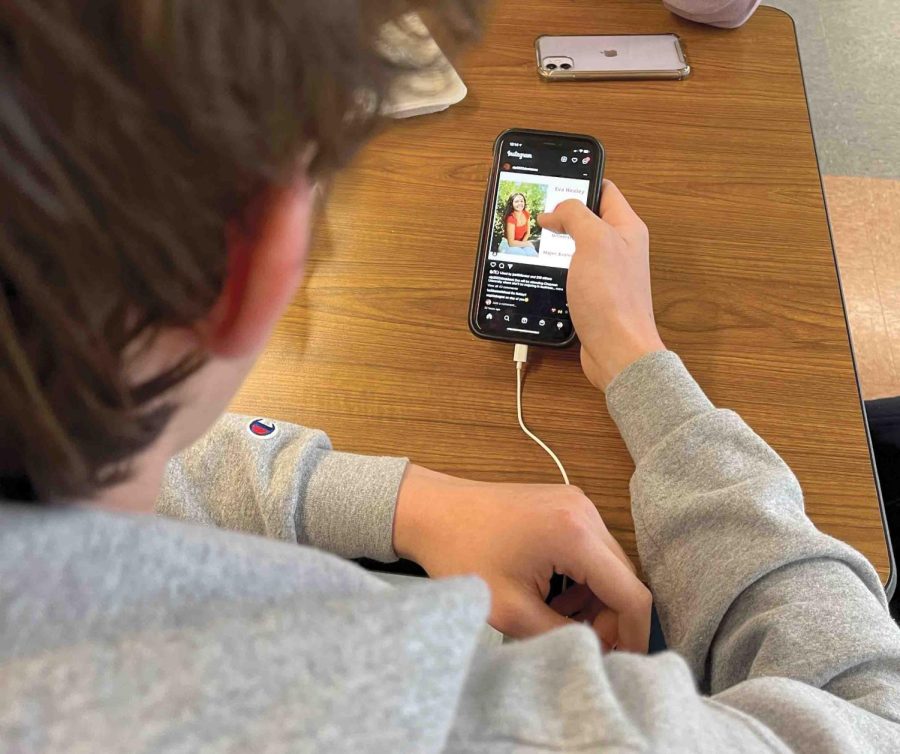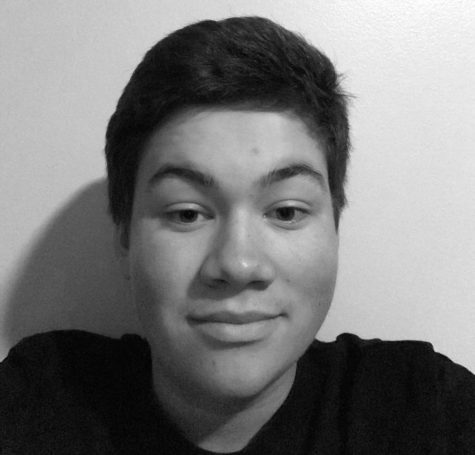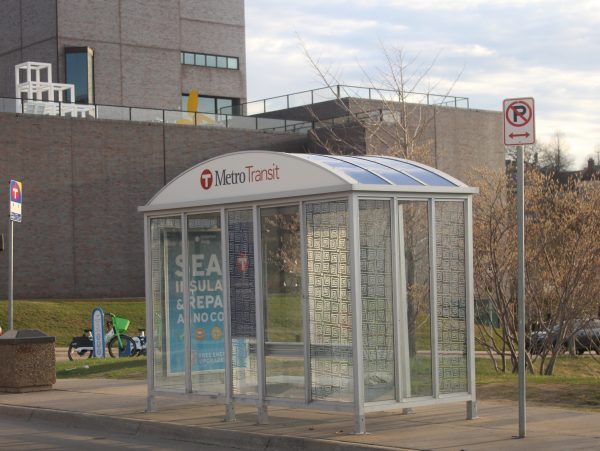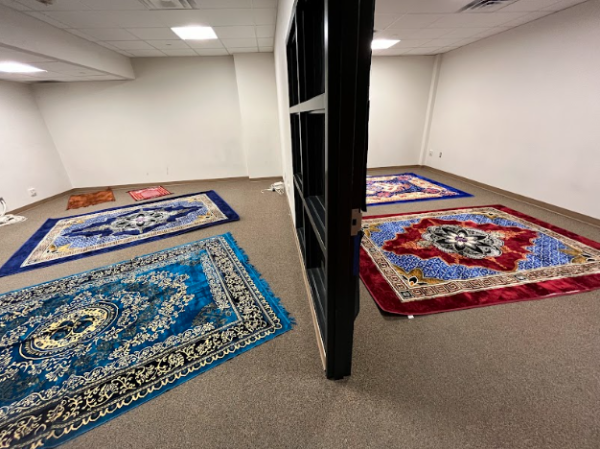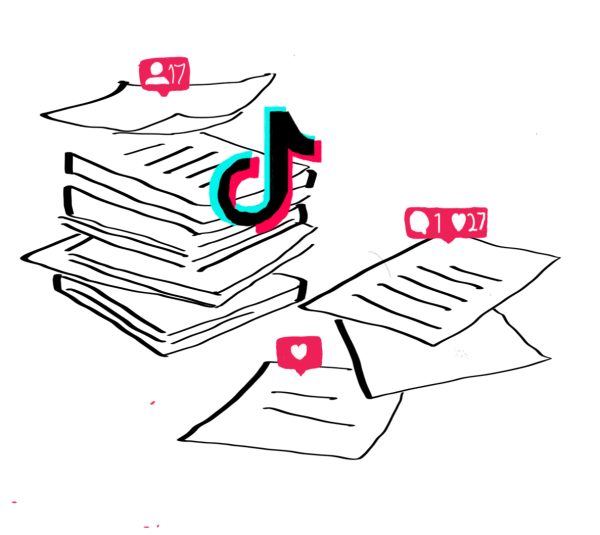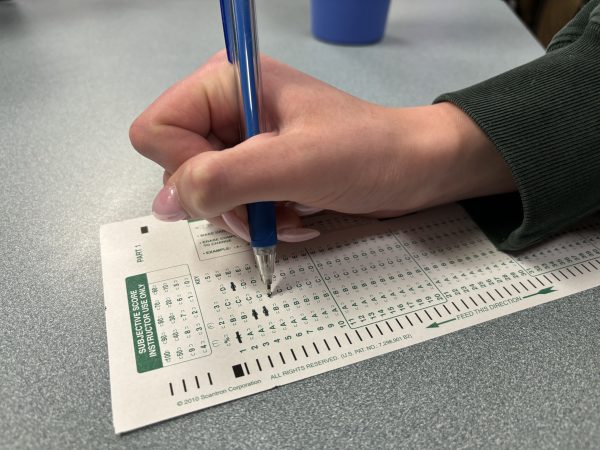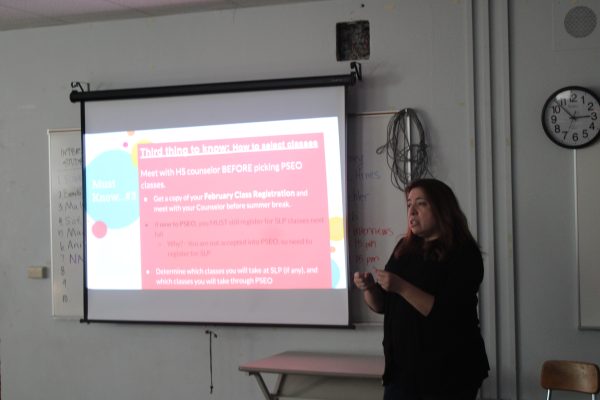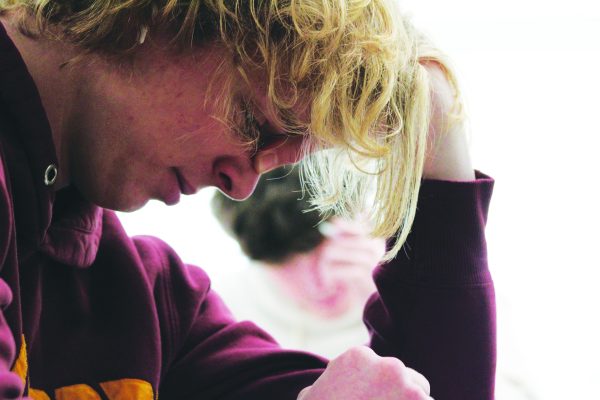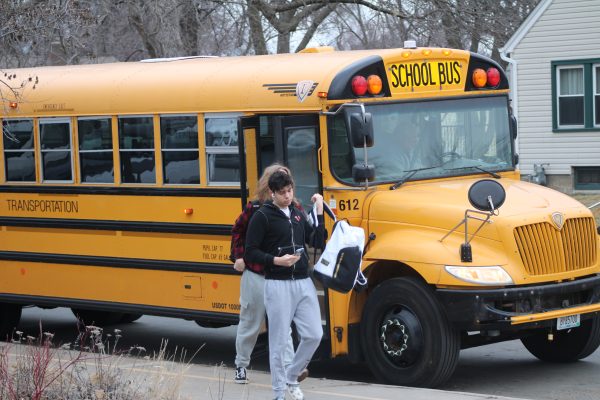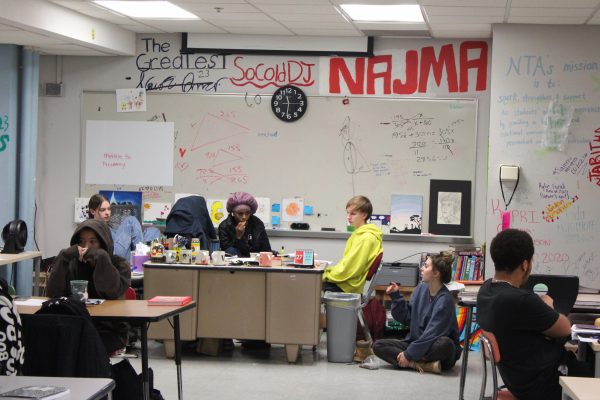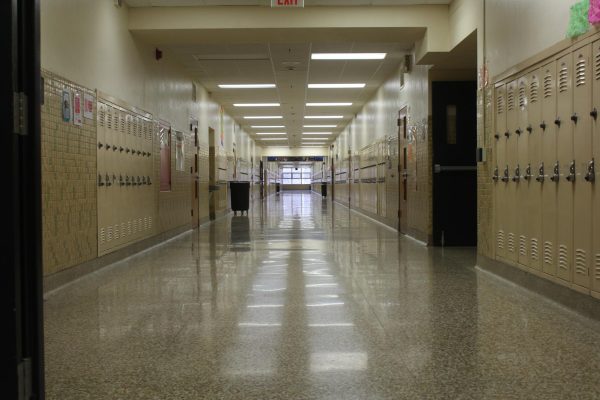Habitual Failure
Bad habits cause students to struggle
Photo Illustration by Henry Harper. Senior Evan Donesky scrolls his phone distracted from academic tasks April 18. After a lack of effort and discipline, students struggle to stay focused and excel academically.
April 19, 2022
The definition of habit is a regular practice that is hard to give up. For Park students, these habits are coming through in incomplete assignments, skipping class and overall underperformance. According to math teacher Anson Opara, he has seen the most students struggle this year.
“This has been the highest percentage (of struggling students) we’ve ever had for sure, and it’s not everyone, but it’s definitely extending into kids who normally succeed,” Opara said.
Licensed psychologist Dr. Richard Douglass said he believes success is built by creating good habits. Douglass said these bad habits could have developed from the change that COVID-19 impacted our lives.
“Before COVID, we were spending all of our time and education building educational habits, being taught to do things a certain way, at a certain time, and in a certain setting,” Douglass said. “These are all typically good habits, and when we took the shift to online learning, it caused a pretty substantial interruption in these habits.”
Senior Will Dvorak said COVID-19 has caused significant behavioral issues for students and he hopes to see growth in his younger peers.
“I mean kids aren’t even showing up to class half the time. Before COVID, I don’t remember school like this at all. I just hope when we (the seniors) graduate this year, the younger kids will be able to get back to what it was,” Dvorak said.
According to Opara, students need to take more initiative and seek out the goals they create for themselves.
“People need to start figuring out what they can do to make the problem better,” she said, “It’s not exactly this way, but students almost seem to be looking at the adults to fix it for them,” Opara said.
Park has tried to take actions to combat this by punishing students who aren’t going to class. According to Douglass, when it comes to habits, research shows reaffirming good habits has been more effective than punishing bad ones.
“Rewarding positive behavior, from lots of research, is a lot more successful and helpful than punishments for the unexpected, or what the school would say is bad behavior,” Douglass said.
Dr. Douglass added to these thoughts by emphasizing the importance of social circles. Douglass believes a strong support system helps people create habits to achieve goals.
“In our society there’s a tendency for people to believe that we have to do things all on our own,” said Douglass. “I want to say that opening up to people you trust and feel close with statistically will help you achieve far more than you think.”



